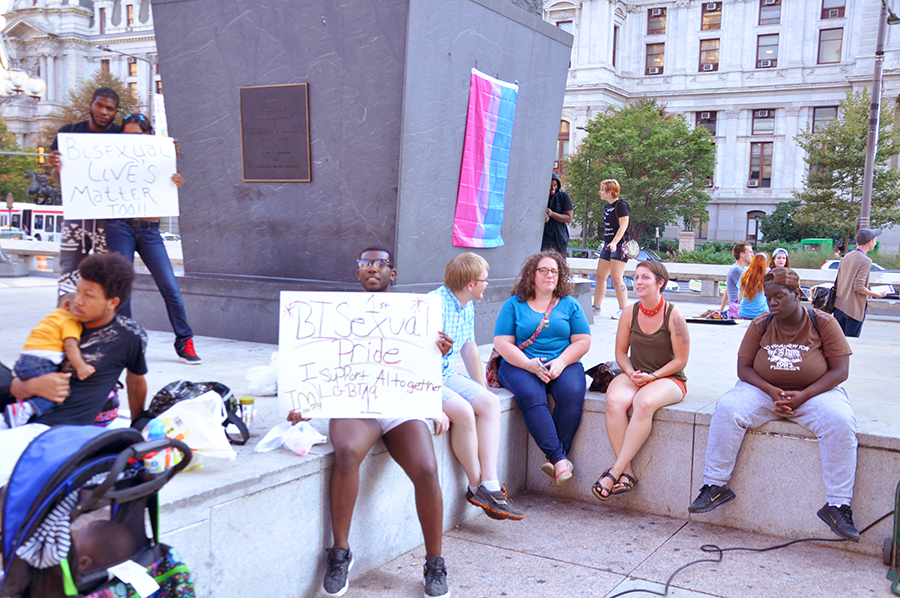Sia’s song “The Greatest,” a tribute to the shooting victims at an LGBT nightclub in Orlando, started playing from a loudspeaker midway through the first Bi Visibility Day Rally in Philadelphia.
About 40 people gathered at the Board Game Art Park Sept. 23 in Center City. Some carried bisexual Pride flags and signs that said things like “I am bi-utiful the way I am.” Many said it was great to meet other bisexual people.
“It’s easy for me to slip into pretending to be a lesbian or straight depending on what space I’m in,” said Emmy Morse of West Philadelphia. “It’s almost worse that the B’s in LGBT, but ignored.”
Steven Johnston, a Montgomery County resident, organized the Bi Visibility Day Rally. While reading about the day online, he found out there wasn’t an event planned for Philadelphia. He put the rally together in two weeks and was happy with the turnout.
“It bodes well for next year,” he said.
Nellie Fitzpatrick, director of the Philadelphia Office of LGBT Affairs, read a proclamation for Bi Visibility Day last year outside the William Way LGBT Community Center. But Johnston’s event represented the first time a community member led the effort to celebrate the day.
Johnston also plans to start a nonprofit to build a visible bisexual community in the region. People can join the Facebook group “Philly BiVisibility” for more information. Johnston hopes to certify the group as a 501(c)3 nonprofit in January. He said the group would aim to advocate for bisexual needs.
Morse wants to participate in more bisexual social events.
Her friends Janice Rael, of Clayton, N.J., and Terri Clark, of Center City, also weighed in on what their ideal bisexual community in Philadelphia would look like.
Rael expressed an interest in a support group. She said a group called Bi-Unity used to meet at William Way 10 years ago, but it disbanded due to lack of attendance. Rael hoped bisexual people would come together more now.
Noting stigma and misunderstanding surrounding bisexual people, Clark said she’d like to see educational programs develop for community members as well as health professionals.
“People see us as sitting on the fence,” Clark said. She wants to dispel that myth. Later, she added, “Validation is what we all need.”
